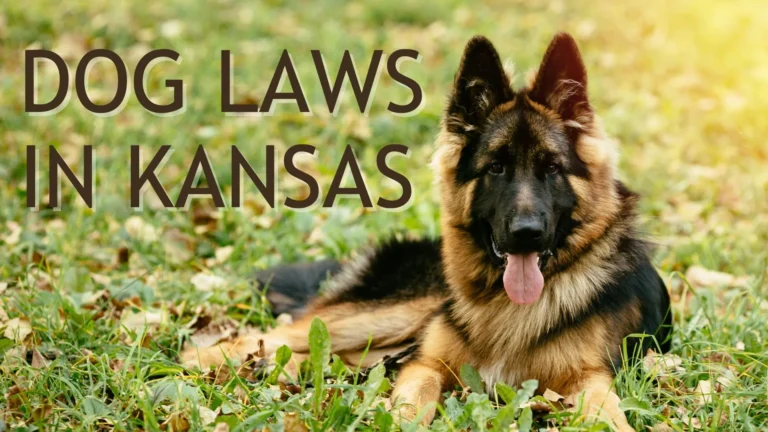Dog Laws in South Carolina
As a dog owner in the United States, with over 85 million canine companions gracing our homes, understanding dog laws is crucial. Not only do these laws protect our furry friends, but they also ensure the safety and well-being of everyone in our communities.
Diving deeper, dog laws encompass a wide range of areas, from leash regulations in public spaces to responsible training practices and even animal cruelty prevention. By familiarizing ourselves with these legalities in our specific state, South Carolina in my case, we can ensure a harmonious and enriching experience for both dogs and humans.
Table of Contents
Dog Bite Laws in South Carolina
South Carolina, with its vibrant communities and beautiful scenery, is a haven for dog lovers. But with so many furry friends around, it’s essential to understand the legalities surrounding dog bites. This comprehensive guide delves into dog bite laws in South Carolina, empowering you to be a responsible dog owner and navigate situations involving dog bites.
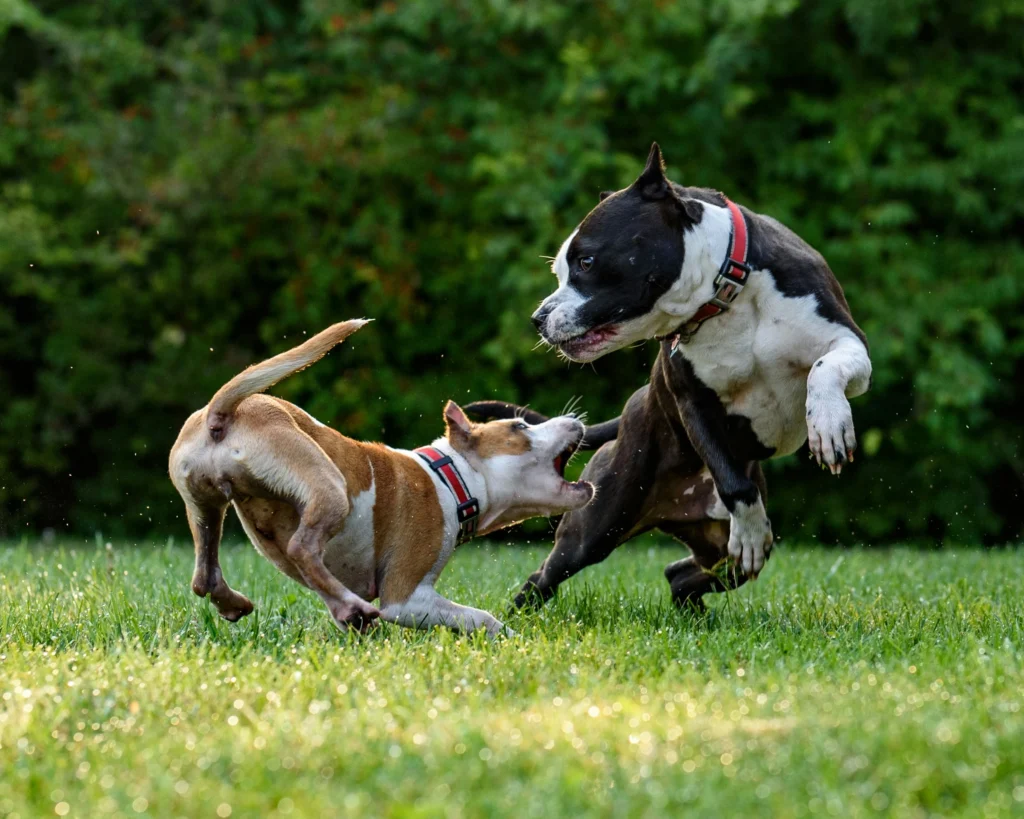
Strict Liability Law
South Carolina operates under a strict liability dog bite statute. This means a dog owner can be held liable for damages caused by their dog’s bite, regardless of whether the owner knew their dog was aggressive or had bitten someone before. Here’s the key takeaway: as a dog owner in South Carolina, you are strictly liable for any injuries or damages caused by your dog’s bite.
What the Law Covers
South Carolina’s dog bite statute (Section 47-3-110 of the South Carolina Code of Laws) applies to situations beyond bites. Here’s what else is covered:
- Injuries Caused by Other Dog Attacks: This includes scratches, knockdowns, or any other injuries inflicted by a dog.
- Liability Extends to Caretakers: The law applies not only to dog owners but also to anyone entrusted with the care or keeping of the dog at the time of the incident.
Dog Bite Liability
While strict liability applies, there are some potential defenses a dog owner can raise in a dog bite lawsuit:
- Provocation: If the victim provoked the dog’s attack by trespassing on private property, teasing, or intentionally harming the dog, the owner might not be liable.
- Trespassing: If the victim was trespassing on private property when bitten, the owner’s liability might be reduced or eliminated, depending on the circumstances.
- Comparative Negligence: If the victim’s own negligence contributed to the bite, their compensation might be reduced based on their degree of fault.
Responsible Dog Ownership
Understanding dog bite laws is crucial, but prevention is always better than cure. Here are some responsible dog ownership practices to minimize the risk of bites:
- Proper Training: Train your dog using positive reinforcement methods to promote obedience and good manners.
- Socialization: Socialize your dog from a young age to ensure they interact confidently with other dogs and people.
- Leash Laws and Supervision: Always adhere to leash laws in public spaces and maintain control of your dog to prevent them from approaching strangers or other dogs without permission.
- Understanding Breed Tendencies: Research your dog’s breed to understand their specific needs and potential behavioral tendencies.
Reporting Dog Bites
South Carolina law requires that dog bites be reported to the county health department. This helps track dog bite incidents and identify potentially dangerous animals. The reporting responsibility falls on:
- Treating Physician: If the bite requires medical attention, the doctor must report the incident.
- Bite Victim or Guardian: If medical attention is not sought, the person bitten (or their parent/guardian if a minor) is responsible for reporting the bite.
The Role of Animal Control
Animal control might investigate dog bite incidents, especially if the dog has a history of aggression or if the bite raises concerns about rabies transmission. They might quarantine the dog or take further action based on their findings.
Taking Action After a Dog Bite
If you’re bitten by a dog, here are some steps to take:
- Seek Medical Attention: This is crucial to prevent infection and ensure proper treatment for your injuries.
- Report the Bite: Report the incident to the county health department as required by law.
- Gather Evidence: If possible, document the bite with photos, witness statements, or any other relevant information.
- Consult an Attorney: An attorney can advise you of your legal rights and options in pursuing compensation for your injuries.
Dog Barking and Noise Laws in South Carolina
South Carolina, with its charming towns and beautiful beaches, is a haven for dog lovers. But even the most loveable canine companion can become a source of frustration if excessive barking disrupts the peace. This guide delves into dog barking and noise laws in South Carolina, empowering you to be a considerate dog owner and navigate situations involving excessive barking.

Nuisance Ordinances
South Carolina doesn’t have a statewide law specifically addressing dog barking. However, most municipalities within the state have nuisance ordinances that address excessive noise, including barking dogs. Here’s the key takeaway: always check the noise ordinances in your city or town to understand the regulations regarding dog barking.
Excessive Barking
Noise ordinances typically define excessive barking based on factors like:
- Duration: Barking for continuous periods or repeatedly throughout the day might be considered excessive.
- Time of Day: Barking late at night or early in the morning might be more disruptive and subject to stricter regulations.
- Reasonableness: Barking triggered by external stimuli like strangers approaching the property might be viewed differently than incessant barking for no apparent reason.
Responsibilities as a Dog Owner
Even without a statewide law, responsible dog ownership dictates taking steps to minimize excessive barking:
- Address the Underlying Cause: Excessive barking often stems from boredom, anxiety, separation anxiety, or a desire for attention. Identify the cause and address it through training, enrichment activities, or addressing potential fear triggers.
- Proper Training: Train your dog using positive reinforcement methods to teach them a “quiet” command and discourage excessive barking.
- Provide Adequate Exercise and Stimulation: A tired dog is a less likely barker. Ensure your dog gets enough physical exercise and mental stimulation through walks, playtime, and interactive toys.
- Desensitization Techniques: If barking is triggered by specific stimuli, employ desensitization techniques with the help of a professional trainer to gradually reduce their reactivity.
Resolving Dog Barking Issues
If your dog’s barking disrupts your neighbors, open communication is key:
- Talk to Your Neighbors: Explain the situation and your efforts to address the barking. Work collaboratively to find solutions.
- Mediation: Some communities offer mediation services to help neighbors resolve noise complaints, fostering a more amicable approach.
Legal Repercussions for Excessive Dog Barking
If your dog’s barking violates local noise ordinances and you fail to address complaints, you might face consequences:
- Warnings: Animal control might issue warnings and provide guidance for addressing the barking.
- Fines: Repeated violations might result in fines.
- Potential Dog Removal: In extreme cases, animal control could seize your dog if the barking isn’t addressed.
Preventing Barking Issues
Here are some proactive measures to prevent excessive barking issues:
- Socialization: Socialize your dog from a young age to get them comfortable with different people, animals, and situations, reducing fear-induced barking.
- Desensitization Training: If your dog barks at specific stimuli like mail carriers or passing cars, work with a trainer to desensitize them to these triggers.
- Provide a Safe and Secure Yard: Ensure your dog’s yard is properly fenced to prevent boredom barking triggered by people or animals walking by.
Common Dog Barking Triggers
Here’s how to address some common triggers for excessive barking:
- Separation Anxiety: Train your dog to be comfortable alone gradually and provide them with enrichment activities when left alone.
- Boredom Barking: Increase your dog’s exercise and mental stimulation through walks, playtime, and interactive toys.
- Territorial Barking: Desensitize your dog to triggers like people or animals outside the window and teach them a “leave it” command.
Dog Poop Disposal Laws in South Carolina
South Carolina, known for its stunning beaches, friendly communities, and breathtaking natural beauty, is a haven for dog lovers. But responsible pet ownership extends beyond walks and playtime. Dog waste management is crucial for maintaining a clean and healthy environment for everyone. This comprehensive guide explores dog poop disposal laws in South Carolina, empowering you to be a responsible dog owner and navigate waste disposal regulations.

Dog Waste Disposal Requirements
South Carolina doesn’t have a single, statewide law mandating dog waste disposal. However, most municipalities within the state have enacted ordinances requiring dog owners to clean up after their pets in public spaces. Here’s the key takeaway: always check the local ordinances in your city or town to understand the specific dog waste disposal requirements.
Protecting Public Health and the Environment
Dog waste isn’t just unpleasant; it can pose health and environmental risks:
- Public Health Concerns: Dog waste can harbor harmful bacteria and parasites that can transmit diseases to humans and other animals.
- Water Pollution: Rainwater runoff can carry dog waste into storm drains, polluting waterways and harming aquatic ecosystems.
- Unpleasant Experiences: No one enjoys stepping in dog waste. Responsible poop scooping ensures a cleaner and more enjoyable environment for everyone.
Responsible Dog Walking and Poop Disposal Practices
Even in areas without explicitly stated laws, responsible dog ownership dictates proper poop scooping:
- Always Carry Poop Bags: Make poop bags an essential part of your dog walking routine.
- Dispose of Waste Properly: Don’t leave poop bags behind in parks or public spaces. Dispose of them in designated waste bins or take them home to dispose of properly.
- Double Bagging for Extra Security: Consider double bagging waste, especially for larger dogs, to minimize the risk of leaks or tears.
- Be Mindful of Location: Avoid leaving waste near playgrounds, walking paths, or areas where children might play.
Local Dog Park Regulations
Many South Carolina communities have dog parks where dogs can socialize and play off-leash. While dog parks offer a great space for canine fun, regulations regarding poop scooping might differ:
- Designated Waste Bins: Most dog parks will have designated waste bins for poop disposal.
- Responsibility of Dog Owners: Even in dog parks, it’s ultimately the dog owner’s responsibility to clean up after their pet.
- Respectful Coexistence: By scooping your dog’s waste, you contribute to a clean and enjoyable experience for all dog park users.
Enforcement of Dog Waste Disposal Laws
Enforcement of dog waste disposal laws can vary depending on the municipality. Here’s what you might encounter:
- Warnings: Animal control officers might issue warnings to first-time offenders.
- Fines: Repeated violations might result in fines.
- Community Education: Many communities promote responsible pet ownership through educational initiatives, highlighting the importance of poop scooping.
Biodegradable Options and Convenience
With a wide variety of poop bags available, here are some factors to consider:
- Biodegradable Options: Opt for biodegradable poop bags to minimize environmental impact.
- Leak-Proof and Sturdy Bags: Choose leak-proof and sturdy bags to prevent unpleasant surprises during your walk.
- Convenience Features: Some bags offer features like scented options or easy-tie handles for added convenience.
Promoting a Poop-Free South Carolina
Responsible dog ownership is a collective effort. Here’s how you can contribute to a cleaner South Carolina:
- Lead by Example: Always clean up after your dog and encourage others to do the same.
- Support Community Initiatives: Participate in clean-up events or support organizations promoting responsible pet ownership.
- Advocate for Dog Waste Disposal Options: Advocate for more designated waste bins in dog parks and public spaces.
Dog Licensing Laws in South Carolina
South Carolina, with its vibrant communities, breathtaking beaches, and lush greenery, is a haven for dog lovers. Responsible pet ownership is crucial for ensuring the well-being of your furry friend and your community. Dog licensing is a key aspect of responsible ownership, contributing to animal control efforts, lost pet recovery, and public health initiatives. This guide explores dog licensing laws in South Carolina, empowering you to understand the legalities and navigate the licensing process.

South Carolina’s Requirements
South Carolina has a statewide law requiring all dogs four months or older to be licensed. Here’s the key takeaway: licensing your dog is not only mandatory but also contributes to a safer and healthier community for both dogs and humans.
Benefits of Dog Licensing
Dog licensing offers several benefits:
- Lost Pet Recovery: Licensed dogs have a higher chance of being reunited with their owners if they get lost. Licensing information helps animal control officers identify and return lost dogs quickly and efficiently.
- Funding for Animal Control: Licensing fees contribute to animal control operations, including sheltering stray animals, investigating cruelty cases, and promoting responsible pet ownership initiatives.
- Disease Prevention and Control: Licensing allows animal control to track vaccination records, aiding in disease prevention efforts.
- Responsible Ownership: Obtaining a license demonstrates your commitment to responsible pet ownership and your role in maintaining a healthy community.
The Licensing Process
The dog licensing process in South Carolina can be completed through various channels:
- Local County Offices: Most counties in South Carolina have dedicated animal control offices where you can license your dog in person.
- Veterinarians: Many veterinarians offer dog licensing services alongside routine checkups or vaccinations.
- Online Licensing: Some South Carolina counties offer online dog licensing for added convenience. Check with your local animal control office for availability.
Required Information for Dog Licensing
When licensing your dog, be prepared to provide the following information:
- Proof of Rabies Vaccination: A current rabies vaccination certificate issued by a licensed veterinarian is mandatory.
- Dog’s Information: This includes your dog’s breed, age, sex, and any identifying features.
- Contact Information: Ensure your contact details, including address and phone number, are accurate and up-to-date.
- Licensing Fee: The licensing fee varies depending on your location and whether your dog is spayed/neutered. Sterilized dogs often receive discounted licensing fees.
Renewing Your Dog’s License
Dog licenses typically expire annually. Most counties will send you a renewal notice before the expiration date. Renewing your dog’s license is crucial to maintain their legal status and the benefits associated with licensing.
Exemptions from Dog Licensing in South Carolina
South Carolina exempts certain dogs from licensing requirements:
- Service Animals: Legally recognized service animals used for tasks related to a disability are exempt from licensing.
- Working Dogs: Certain categories of working dogs, such as those used by law enforcement or herding livestock, might have specific licensing requirements or exemptions depending on their role.
- Dogs Under Four Months Old: Puppies younger than four months old are not required to be licensed. However, licensing them early ensures a smooth transition and avoids any lapse in legality.
Consequences of Non-Licensing
Failing to license your dog in South Carolina can lead to consequences:
- Fines: Unlicensed dogs might be subject to fines, with the amount varying by county.
- Impoundment: Animal control could impound unlicensed dogs until licensing fees and any associated fines are paid.
Responsible Ownership Beyond Licensing
Dog licensing is a crucial aspect of responsible ownership, but it’s not the only factor:
- Microchipping: Consider microchipping your dog in addition to licensing. This permanent identification method significantly increases the chances of reuniting with your dog if they get lost.
- Identification Tags: Attach the dog license tag and a separate rabies vaccination tag to your dog’s collar for easy identification.
- Preventative Care: Maintain a regular veterinary care schedule, including vaccinations and parasite prevention, for your dog’s health and well-being.
Dog Leash Laws in South Carolina
South Carolina, with its charming towns, scenic mountains, and beautiful beaches, is a dog lover’s paradise. But venturing out with your furry friend requires understanding the legalities to ensure safe and enjoyable walks for everyone. This guide explores dog leash laws in South Carolina, empowering you to be a responsible dog owner and navigate leash regulations in various settings.

Statewide Framework with Local Variations
South Carolina has a statewide leash law requiring all dogs to be restrained by a leash no longer than six feet in public places. Here’s the key takeaway: no matter where you are in South Carolina, always keep your dog on a leash in public spaces unless explicitly designated as off-leash.
The Importance of Leash Laws
Leash laws serve several crucial purposes:
- Public Safety: Leashes prevent dog bites and attacks, protecting both humans and other animals.
- Minimizing Disruptions: Keeping dogs leashed minimizes disruptions to other park users, joggers, or people walking their own dogs.
- Preventing Accidents: Leashes prevent dogs from running into traffic, chasing wildlife, or getting lost.
- Responsible Ownership: Following leash laws demonstrates responsible dog ownership and respect for others.
Local Leash Law Variations
While the statewide leash law provides a baseline, individual municipalities within South Carolina might have stricter or more specific leash ordinances. Here’s what you need to do:
- Always Check Local Regulations: Before venturing out with your dog, familiarize yourself with the specific leash laws in your city or town.
- Local Government Websites: Most local government websites have dedicated sections outlining leash laws and animal control ordinances.
- Contacting Animal Control: If unsure about local leash regulations, don’t hesitate to contact your local animal control office for clarification.
Common Leash Law Variations
Here are some common variations you might encounter in local leash laws:
- Leash Length: The statewide six-foot leash requirement could be stricter in some areas, requiring shorter leashes in specific locations like crowded parks.
- Retractable Leashes: Some localities might restrict the use of retractable leashes due to difficulty maintaining control over the dog.
- Leash-Free Zones: Some parks or designated areas might be designated as off-leash dog parks where responsible dog owners can allow their well-trained dogs to play freely under supervision.
Ensuring Safe and Pleasant Walks
Following leash laws is essential, but responsible leash use takes it a step further:
- Choose the Right Leash: Select a leash that’s sturdy and appropriate for your dog’s size and strength.
- Maintaining Control: Keep a firm but gentle grip on the leash to prevent your dog from pulling or lunging at other dogs or people.
- Proper Leash Etiquette: Be mindful of other park users and give them ample space. Retract the leash when passing by others or oncoming dogs.
- Supervise Your Dog: Always supervise your dog while leashed, ensuring they don’t become entangled or cause disruptions.
Off-Leash Dog Parks
Off-leash dog parks offer a designated space for canine socialization and exercise. However, utilizing these areas comes with responsibilities:
- Park-Specific Rules: Review the park’s specific rules before entering. Some parks might have size restrictions or require proof of vaccination.
- Dog Training and Temperament: Only bring dogs who are well-trained, socialized, and have good recall to ensure a safe and enjoyable experience for everyone.
- Constant Supervision: Never leave your dog unattended in an off-leash park. Remain vigilant and intervene if any conflicts arise.
- Cleaning Up After Your Dog: Always clean up after your dog’s waste to maintain a clean and pleasant environment for all park users.
Consequences of Violating Leash Laws
Failing to comply with leash laws in South Carolina can lead to consequences:
- Warnings: Animal control officers might issue warnings for first-time offenders.
- Fines: Repeated violations might result in fines.
- Leash Training Requirements: Courts might order leash training classes for dogs involved in leash law violations.
Dangerous Dog Laws in South Carolina
South Carolina, with its vibrant communities and stunning natural beauty, is a haven for dog lovers. However, ensuring a safe environment for everyone requires understanding the legalities surrounding dangerous dogs. This comprehensive guide explores dangerous dog laws in South Carolina, empowering dog owners to be responsible and navigate situations involving potentially dangerous canines.
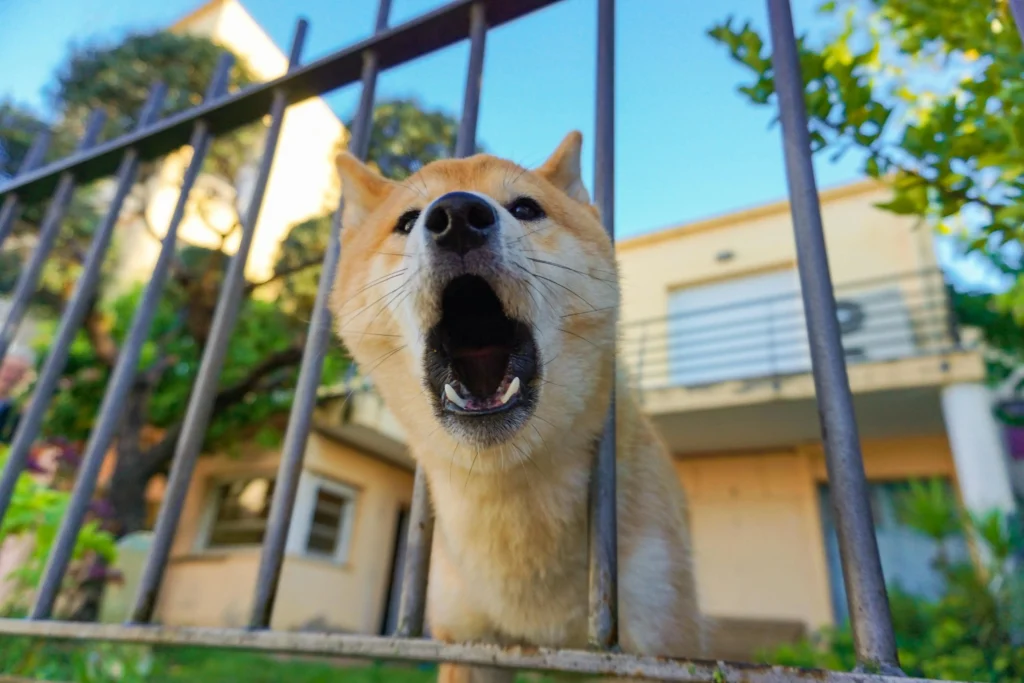
Defining Dangerous Dogs in South Carolina
South Carolina doesn’t have a single, definitive list of breeds classified as “dangerous.” Instead, the state focuses on a dog’s behavior to determine dangerousness. Here’s the key takeaway: any dog, regardless of breed, can be deemed dangerous in South Carolina based on its history of aggression.
Characteristics of a Potentially Dangerous Dog
While breed isn’t the sole factor, some behaviors might raise concerns:
- History of Biting or Attacking: A documented history of biting or attacking humans or other animals is a strong indicator of dangerousness.
- Threatening Behavior: Growling, snapping, or lunging at people or animals without provocation suggests a potential threat.
- Unprovoked Aggression: Aggression exhibited towards unfamiliar people, animals, or even familiar faces without a clear trigger is a red flag.
The Role of Animal Control
Animal control officers play a crucial role in dangerous dog designations. Here’s the process:
- Investigation of Incidents: If an animal control officer receives a report of a dog bite or aggressive behavior, they will investigate the incident.
- Evidence Gathering: This might involve witness statements, medical reports, or observations of the dog’s behavior.
- Hearing and Designation: Following an investigation, a hearing might be held to determine if the dog should be classified as dangerous.
- Appeal Process: Dog owners have the right to appeal a dangerous dog designation.
Restrictions and Requirements for Dangerous Dogs
If your dog is classified as dangerous, specific restrictions and requirements will apply:
- Muzzle Requirement: Your dog might be required to wear a secure muzzle whenever in public places.
- Leash Restrictions: Leash length restrictions might be implemented, requiring a shorter leash or a double leash for additional control.
- Confinement Requirements: Dangerous dogs might be required to be confined in a secure enclosure or kennel whenever outdoors.
- Financial Responsibility: Dog owners might be held financially responsible for any injuries or damages caused by their dangerous dog.
Responsible Ownership
While legal guidelines exist, prevention is always better than cure:
- Proper Training: Train your dog using positive reinforcement methods to promote obedience, socialization, and impulse control.
- Socialization: Socialize your dog from a young age to ensure they are comfortable with different people, animals, and situations.
- Understanding Your Dog’s Body Language: Learn to recognize signs of stress or anxiety in your dog to prevent them from escalating into aggression.
- Responsible Breeding: If considering breeding, choose responsible breeders who prioritize temperament testing and good breeding practices.
Resources for Dog Owners
Several resources are available to help dog owners in South Carolina:
- Local Animal Control Offices: Contact your local animal control office for information on dangerous dog laws and training resources.
- Professional Dog Trainers: Consider working with a certified professional dog trainer to address behavioral issues and promote responsible ownership.
- Veterinarians: Consult your veterinarian for guidance on behavior modification and potential medical factors contributing to aggression.
The Importance of Community Safety
Understanding dangerous dog laws and taking steps to prevent aggression are crucial for responsible ownership. By prioritizing responsible dog training, socialization, and recognizing potential warning signs, you can contribute to a safer and more harmonious community for everyone.
Dog Laws Limitations
It’s important to understand limitations of the law:
- Neglect and Cruelty: Dangerous dog laws focus on aggressive behavior, not neglect or cruelty. Neglecting your dog’s basic needs can contribute to aggression.
- Breed Bans: South Carolina doesn’t have breed-specific bans. Focusing on individual dog behavior is a more effective approach.
Dog Health and Welfare Laws in South Carolina
South Carolina, with its beautiful beaches, charming towns, and scenic landscapes, is a haven for dog lovers. But beyond walks and playtime, responsible pet ownership necessitates understanding the legalities surrounding dog health and welfare. This comprehensive guide delves into dog health and welfare laws in South Carolina, empowering you to ensure your furry friend’s well-being and navigate legal requirements.

The Legal Landscape
South Carolina doesn’t have a single, codified law solely dedicated to dog health and welfare. However, animal cruelty statutes within the South Carolina Code of Laws (Title 14) offer a legal framework protecting animals from neglect and abuse. Here’s the key takeaway: South Carolina law prohibits animal cruelty, and dog owners have a legal responsibility to provide their dogs with basic necessities for a healthy life.
Animal Cruelty
Animal cruelty encompasses a wide range of acts that inflict unnecessary pain, suffering, or death on an animal. Here are some examples:
- Denial of Basic Necessities: Failing to provide adequate food, water, shelter, and veterinary care constitutes cruelty.
- Physical Abuse: Any intentional act of violence or injury inflicted on a dog is considered abuse.
- Abandonment: Leaving a dog behind without making reasonable efforts to find them a new home is considered abandonment.
- Tethering Restrictions: Unattended tethering for extended periods, especially in extreme weather conditions, can be considered cruelty.
Reporting Suspected Animal Cruelty
If you suspect a dog is being neglected or abused, it’s crucial to report it:
- Local Animal Control: Contact your local animal control office to report your concerns. They are authorized to investigate suspected cruelty cases.
- Law Enforcement: In cases of severe abuse or neglect, contacting law enforcement might be necessary.
- Animal Welfare Organizations: Several animal welfare organizations in South Carolina can offer guidance and support in reporting cruelty cases.
Responsibilities of Dog Ownership
Beyond legal mandates, responsible dog ownership dictates providing your dog with essentials for a healthy life:
- Adequate Food and Water: Provide your dog with a balanced diet appropriate for their age, breed, and activity level. Always ensure they have access to clean, fresh water.
- Shelter and Protection: Offer your dog a safe and secure shelter from the elements, including extreme weather conditions.
- Veterinary Care: Maintain a regular veterinary care schedule, including vaccinations, parasite prevention, and checkups to ensure your dog’s health.
- Exercise and Enrichment: Provide your dog with adequate exercise and mental stimulation through walks, playtime, and interactive toys to prevent boredom and destructive behaviors.
Additional Considerations
Several other factors contribute to a dog’s well-being:
- Training and Socialization: Train your dog using positive reinforcement methods to establish a strong bond, promote obedience, and prevent unwanted behaviors. Socialize your dog with other dogs and people from a young age for a well-adjusted canine companion.
- Identification: Microchip your dog and ensure they wear a collar with updated identification tags for easier recovery if they get lost.
- Breeding Practices: If considering breeding your dog, research responsible breeding practices to prioritize the health and well-being of puppies.
Resources for Dog Owners
South Carolina offers several resources to support responsible dog ownership:
- Local Animal Control Offices: Animal control offices provide information on animal cruelty reporting, local ordinances, and potentially low-cost or free vaccination clinics.
- Veterinarians: Consult your veterinarian for guidance on proper dog care, nutrition, and preventive healthcare.
- Animal Shelters and Rescue Organizations: Animal shelters and rescue organizations offer information on dog adoption, training resources, and responsible pet ownership practices.
Responsible Ownership
Dog ownership is a privilege, and with that privilege comes the responsibility to ensure your dog’s health and happiness. By understanding animal cruelty laws, providing for your dog’s basic needs, and seeking professional guidance when needed, you can contribute to a more compassionate environment for all animals in South Carolina.
While There Isn’t a Single Dog Welfare Law
It’s important to note the limitations of the legal framework:
- Specificity: Animal cruelty statutes are broad and might require interpretation in specific cases.
- Enforcement: Enforcing animal cruelty laws can be challenging, and resources for animal control might be limited in some areas.
Dog Public Access Laws in South Carolina
South Carolina, with its vibrant communities, breathtaking beaches, and scenic trails, is a dog-loving state. But venturing out with your furry friend requires understanding the legalities surrounding public access. This comprehensive guide explores dog public access laws in South Carolina, empowering you to navigate where you can bring your canine companion and ensure a positive experience for everyone.

The Legal Landscape
South Carolina doesn’t have a single, statewide law mandating public places allow dogs. Public access for dogs is largely determined by the rights of private property owners and businesses. Here’s the key takeaway: always check with the establishment or park regulations before bringing your dog to a public space.
Private Property Rights
Since public access isn’t guaranteed by law, here’s how to navigate different locations:
- Businesses: Many businesses, like restaurants or retail stores, have the right to decide whether or not to allow dogs on their premises. Look for signage indicating pet-friendliness or check with the business directly.
- Parks and Recreation Areas: Public parks and recreation areas might have designated dog parks or off-leash areas for canine fun. Always adhere to leash laws and park-specific regulations regarding dogs.
- Government Buildings: Most government buildings, like courthouses or libraries, typically don’t allow dogs except for service animals.
Dog-Friendly Establishments
While public access isn’t mandated, South Carolina has seen a rise in dog-friendly businesses:
- Pet-Friendly Designation: Many restaurants, cafes, and shops proudly advertise themselves as dog-friendly, welcoming well-behaved canine companions.
- Understanding Etiquette: If visiting a dog-friendly establishment, ensure your dog is leashed, well-behaved, and doesn’t disrupt other patrons.
- Cleaning Up After Your Dog: Always clean up after your dog’s waste, regardless of the location, to maintain a clean and pleasant environment for everyone.
Service Animal Laws
Federal Law (Americans with Disabilities Act – ADA) protects the rights of individuals with disabilities to be accompanied by trained service animals in all public places where the public is allowed. Here’s what this means for public access:
- Service Animals vs. Emotional Support Animals (ESAs): The ADA only recognizes trained service animals that perform specific tasks to mitigate a disability. ESAs are not granted the same public access rights.
- Verification of Service Animal Status: Businesses cannot require documentation for service animals, but they can ask two questions: (1) Is the dog required because of a disability? (2) What work or task does the dog perform to help with the disability?
Responsible Dog Ownership for Public Access
Responsible dog ownership is crucial for maintaining public access opportunities for well-behaved dogs:
- Proper Training: Train your dog using positive reinforcement methods to ensure good leash manners, obedience, and socialization.
- Respectful Behavior: Ensure your dog doesn’t bark excessively, jump on people, or create disruptions in public spaces.
- Cleaning Up After Your Dog: Always clean up after your dog’s waste to prevent public health concerns and maintain a clean environment.
Advocacy for Dog-Friendly Access
South Carolina dog owners can advocate for increased dog-friendly access:
- Supporting Dog-Friendly Businesses: Patronize businesses that welcome well-behaved canine companions, showing the economic benefits of dog-friendliness.
- Contacting Local Representatives: Voice your support for dog-friendly policies in parks and public spaces by contacting your local representatives.
Potential Restrictions
There are some valid reasons why certain public spaces might have restrictions for dogs:
- Public Health Concerns: Areas like swimming pools or playgrounds might limit dog access to minimize potential health risks.
- Fragile Ecosystems: Some parks or nature preserves might restrict dogs to protect sensitive wildlife or vegetation.
- Safety Considerations: Areas with high foot traffic or potential hazards for dogs, like dog parks under construction, might have temporary dog restrictions.
Dog-Friendly Activities and Locations
Despite limitations, South Carolina offers plenty of dog-friendly activities and locations:
- Dog Parks: Many communities have designated dog parks where dogs can run free and socialize under supervision.
- Hiking Trails: Several dog-friendly hiking trails allow you to explore nature with your furry friend.
- Dog-Friendly Events: Check local listings for dog-friendly events like farmers markets or outdoor movie nights where you can enjoy quality time with your pup.
Dog Travel and Transportation Laws in South Carolina
South Carolina, with its stunning coastlines, charming towns, and scenic landscapes, is a haven for both humans and their furry companions. But planning a trip with your canine friend necessitates understanding the legalities surrounding dog travel and transportation. This comprehensive guide explores dog travel and transportation laws in South Carolina, empowering you to ensure a safe and compliant journey for your dog.
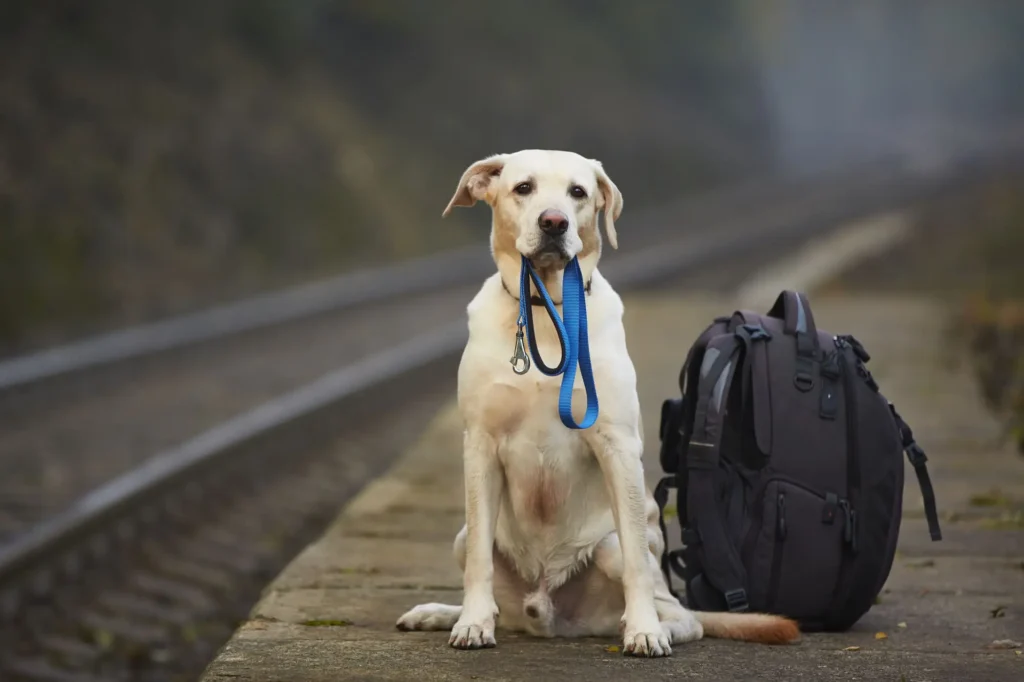
The Legal Landscape
South Carolina doesn’t have a single, codified law outlining dog travel regulations. However, federal regulations and individual policies of public transportation providers dictate the legalities of bringing your dog on board. Here’s the key takeaway: always check with the specific public transportation provider (bus company, airline, train) to understand their pet policies before traveling.
Traveling by Plane
Each airline has its own specific pet policies regarding dog travel. Here are some general considerations:
- Size and Breed Restrictions: Some airlines restrict pet travel based on the dog’s size or breed. Certain breeds might be classified as brachycephalic (short-nosed) and deemed unsuitable for air travel due to breathing difficulties.
- Pet Fees and Documentation: Airlines typically charge pet fees for transporting dogs in the cabin or cargo hold. Ensure your dog has all required vaccinations and health certificates current for travel.
- Travel Crates and Carriers: Airlines have specific requirements for pet carriers, including size, ventilation, and material. Choose a carrier that meets airline regulations and is comfortable for your dog.
Traveling by Train
Amtrak, the national passenger railroad service, offers limited pet transportation on specific routes. Here’s what you need to know:
- Program Availability: Not all Amtrak routes allow pets. Check their website for routes where pet transportation is an option.
- Pet Fees and Requirements: Amtrak charges pet fees and requires specific carriers, health certificates, and advance reservations for dogs traveling on board.
- Size and Breed Restrictions: Similar to airlines, Amtrak might have size or breed restrictions for pet travel.
Traveling by Bus
Most intercity bus companies in South Carolina don’t allow pets on board as passengers. However, some companies might offer limited exceptions for service animals. Here’s what to do:
- Contacting Bus Companies: Always contact the specific bus company you plan to travel with to inquire about their pet policies.
- Alternative Transportation Options: If traveling by bus with your dog isn’t feasible, explore alternative transportation options like pet-friendly car rentals or private transportation services.
Traveling by Car
Taking a road trip with your dog in South Carolina offers flexibility and adventure. Here’s how to ensure a safe and comfortable journey:
- Vehicle Restraint: Use a crate or secure harness to restrain your dog in the car to prevent them from becoming projectiles in case of an accident.
- Regular Breaks: Plan for frequent rest stops to allow your dog to relieve themselves, stretch their legs, and stay hydrated.
- Temperature Control: Never leave your dog unattended in a parked car, especially during hot weather. Maintain a comfortable temperature inside the vehicle.
Additional Considerations
Beyond transportation regulations, consider these factors for a smooth travel experience:
- Vaccinations and Health Certificates: Ensure your dog’s vaccinations are up-to-date and obtain any necessary health certificates required by your destination, especially if traveling across state lines.
- Identification: Microchip your dog and ensure they wear a collar with updated identification tags for easier recovery if they get lost during your travels.
- Pet-Friendly Accommodations: Book pet-friendly accommodations at your destination to ensure a comfortable stay for both you and your furry friend.
Resources for Dog Travelers
Several resources can help dog owners navigate travel with their companions:
- Airline Websites: Check the websites of specific airlines you are considering for their detailed pet travel policies and requirements.
- Amtrak Website: The Amtrak website outlines their pet travel program availability, fees, and requirements for transporting dogs on trains.
- American Kennel Club (AKC): The AKC website offers a wealth of information on pet travel, including resources on finding pet-friendly accommodations and planning a safe trip with your dog.
Dog Housing and Accommodation Laws in South Carolina
South Carolina, with its vibrant cities, beautiful beaches, and charming towns, is a haven for dog lovers. But finding a place to call home can be trickier when you have a furry companion. This comprehensive guide explores dog housing and accommodation laws in South Carolina, empowering you to navigate rental agreements, understand your rights as a responsible dog owner, and ensure a smooth experience for you and your pup.

The Legal Landscape
South Carolina doesn’t have a single, specific law outlining dog housing rights. However, the Federal Fair Housing Act (FHA) and its counterpart, the South Carolina Fair Housing Law, protect individuals with disabilities from discrimination based on their need for assistance animals. Here’s the key takeaway: landlords cannot discriminate against tenants with assistance animals, but they can enforce reasonable breed or size restrictions for other pets.
Assistance Animals vs. Pets
The FHA makes a crucial distinction between assistance animals and pets:
- Assistance Animals: These include service animals (trained to perform tasks for individuals with disabilities) and emotional support animals (ESAs) providing emotional or psychological support but not trained for specific tasks.
- Verification for Service Animals: Landlords cannot require documentation for service animals but can ask two questions: (1) Is the dog required because of a disability? (2) What work or task does the dog perform to help with the disability?
- Documentation Requirements for ESAs: For ESAs, a letter from a licensed mental health professional documenting the need for emotional support might be required.
Landlord Rights and Reasonable Restrictions
While landlords cannot discriminate against assistance animals, they have some rights regarding pets:
- Pet Policies: Landlords can have pet policies outlining breed or size restrictions, pet fees, and limitations on the number of pets allowed per unit.
- Screening Procedures: Landlords can conduct pet screening procedures, including inquiries about breed, weight, and temperament.
- Reasonable Restrictions: Restrictions must be objectively reasonable and cannot discriminate based on breed alone (e.g., weight limits, restrictions on certain dog breeds with a history of aggression).
Finding Dog-Friendly Rentals
With responsible searching, you can find dog-friendly rentals in South Carolina:
- Researching Online Listings: Many online rental platforms allow filtering by pet-friendliness.
- Contacting Property Managers: Inquire about pet policies and any breed or size restrictions before scheduling viewings.
- Highligting Your Responsible Ownership: During the application process, emphasize your responsible dog ownership practices, like training and obedience.
Responsibilities of Dog Owners in Dog-Friendly Rentals
Living in a dog-friendly rental comes with responsibilities:
- Compliance with Pet Policies: Adhere to the pet policies outlined in your lease agreement, including breed or size restrictions, pet fees, and leash requirements within the complex.
- Waste Management: Always clean up after your dog’s waste to maintain a clean and sanitary environment for all residents.
- Noise Control: Train your dog to minimize barking or disruptive behavior that might disturb other tenants.
- Obtaining Pet Insurance: Consider pet insurance to prepare for potential pet-related damages in your rental unit.
Resources for Dog Owners
Several resources can help dog owners navigate the housing search in South Carolina:
- Fair Housing Council: The Fair Housing Council can provide guidance on your rights as a tenant with an assistance animal and help navigate potential discrimination cases.
- Local Animal Shelters and Rescue Organizations: Animal shelters and rescue organizations might offer resources or listings for dog-friendly rentals.
- Online Communities and Forums: Connect with other dog owners in South Carolina through online communities or forums to share information about dog-friendly rentals.
Building Positive Relationships with Landlords
A positive relationship with your landlord can go a long way in ensuring a smooth living experience with your dog:
- Open Communication: Communicate openly with your landlord about your dog, including breed, size, and temperament.
- Obedience Training: Invest in obedience training for your dog to showcase responsible ownership and minimize potential concerns.
- References from Previous Landlords: If you have positive references from previous dog-friendly landlords, provide them during the application process.
Dog Adoption and Sale Laws in South Carolina
South Carolina, with its warm hospitality and stunning landscapes, is a haven for dog lovers. Whether you’re considering welcoming a furry friend through adoption or purchasing a purebred pup, understanding the legalities surrounding dog acquisition is crucial. This comprehensive guide explores dog adoption and sale laws in South Carolina, empowering you to make informed decisions and ensure a responsible, ethical experience.
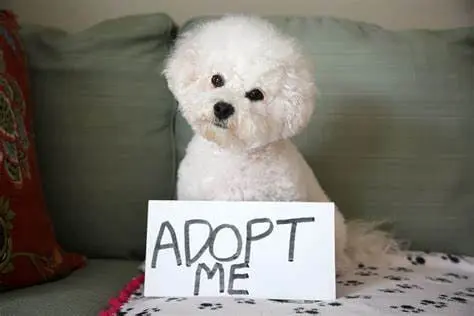
The Legal Landscape
South Carolina doesn’t have a single, codified law solely dedicated to dog adoption or sale. However, several regulations contribute to consumer protection and animal welfare in these processes:
- Business Licensing: Pet stores and breeders selling dogs must obtain a business license from the South Carolina Department of Agriculture (SCDA).
- Animal Welfare Act (AWA): The federal AWA establishes minimum care standards for dogs housed by commercial breeders and pet stores.
- Consumer Protection Laws: South Carolina Consumer Protection laws protect against deceptive advertising and unfair business practices in dog sales.
Finding Your Perfect Match: Exploring Dog Adoption
Dog adoption offers a loving home to countless dogs in need. Here’s what to know about adopting a dog in South Carolina:
- Animal Shelters and Rescue Organizations: Numerous animal shelters and rescue organizations in South Carolina house dogs of various breeds, ages, and temperaments.
- Adoption Process: The adoption process typically involves an application, reference checks, a meet-and-greet with the dog, and an adoption fee that covers spaying/neutering, vaccinations, and microchipping.
- Benefits of Adoption: By adopting, you give a deserving dog a second chance at a happy life, often at a lower cost compared to purchasing a dog from a breeder.
Shelter and Rescue Regulations
Animal shelters and rescue organizations in South Carolina generally adhere to specific regulations:
- Vaccinations and Health Checks: Dogs up for adoption are typically spayed/neutered, vaccinated, and receive a thorough health check before being placed.
- Transparency and Information Sharing: Reputable shelters and rescues provide information about the dog’s history, temperament, and any known medical conditions.
- Focus on Responsible Adoptions: Many shelters conduct screenings to ensure potential adopters can provide a loving and suitable forever home for the dog.
Choosing a Responsible Breeders
If considering purchasing a purebred dog, choose a responsible breeder who prioritizes the health and well-being of their animals:
- Breeder Reputation: Research the breeder’s reputation, including online reviews and recommendations from veterinarians or breed-specific organizations.
- Kennel Inspections: Look for breeders who participate in voluntary kennel inspections by reputable organizations.
- Health Testing and Guarantees: Responsible breeders conduct health testing on their breeding stock and offer some form of health guarantee for puppies.
Laws Related to Dog Sales
While there isn’t a single dog sale law, consider these regulations:
- Lemon Law Protection: South Carolina’s “puppy lemon law” offers limited protection for buyers of sick or unhealthy puppies purchased from pet stores or breeders.
- Recordkeeping Requirements: Breeders selling more than six dogs a year must maintain specific records, including health clearances for breeding stock and sales receipts.
- Fraudulent Sales Practices: Consumer protection laws prohibit deceptive advertising and unfair business practices, such as misrepresenting the dog’s breed, health, or age.
Red Flags to Watch Out for When Buying a Dog
Be cautious of these red flags when considering purchasing a dog:
- Puppy Mills: Avoid breeders with overcrowded kennels, poor hygiene conditions, or a lack of transparency about their breeding practices.
- Unethical Online Marketplaces: Beware of online marketplaces where sellers might prioritize profit over animal welfare.
- Unrealistic Guarantees: Be wary of breeders offering unrealistic guarantees or promising specific temperaments in young puppies.
Additional Considerations
Beyond legalities, consider these aspects for a responsible dog acquisition:
- Matching Your Lifestyle: Choose a dog breed or mix that suits your lifestyle and living situation, including activity level and space requirements.
- Meeting Your Needs and Expectations: Be realistic about your needs and expectations for a dog. Consider factors like training needs, grooming requirements, and potential vet bills.
- Lifetime Commitment: Remember, adopting or purchasing a dog is a lifelong commitment. Ensure you can provide for the dog’s physical and emotional needs for its entire life.
Dog Park and Recreation Laws in South Carolina
South Carolina, with its beautiful beaches, charming towns, and scenic trails, is a haven for outdoor enthusiasts and their canine companions. But venturing out with your furry friend for some off-leash fun requires understanding the legalities surrounding dog parks and recreation areas. This comprehensive guide explores dog park and recreation laws in South Carolina, empowering you to enjoy safe and responsible outings with your pup.

The Legal Landscape
South Carolina doesn’t have a single, statewide law mandating specific regulations for dog parks or recreation areas allowing dogs. Public access for dogs in these spaces is largely determined by the rules established by local municipalities, county parks and recreation departments, or private dog park operators. Here’s the key takeaway: always check with the specific dog park or recreation area for their leash laws, access restrictions, and etiquette guidelines.
Exploring Dog Parks
Many communities in South Carolina boast designated dog parks where canine companions can run free and socialize under supervision. Here’s what to know about dog park etiquette and regulations:
- Leash Laws: Leashes are typically mandatory outside designated dog park areas. Once inside the dog park, most allow off-leash playtime.
- Waste Management: Always clean up after your dog’s waste using provided waste bags and disposal bins. Responsible waste management keeps the park clean and prevents the spread of disease.
- Supervision and Control: Never leave your dog unattended at a dog park. Remain vigilant and maintain control of your dog throughout your visit.
- Socialization: Ensure your dog is well-socialized and dog-friendly before introducing them to the off-leash environment of a dog park.
- Understanding Breed Considerations: Some dog parks might have size or breed restrictions based on potential safety concerns. Check the park’s rules before bringing your dog.
Finding Dog-Friendly Recreation Areas
While off-leash access might be limited, South Carolina offers several recreation areas where you can enjoy outdoor adventures with your dog on a leash:
- State Parks and Forests: Some South Carolina state parks and forests allow leashed dogs on designated trails. Always check the park’s website for specific leash laws and pet restrictions.
- County Parks and Recreation Areas: Many county parks offer trails or green spaces where you can explore with your dog on a leash.
- Beaches: Leash laws for beaches vary by location. Some beaches allow dogs on a leash during specific hours, while others might have seasonal restrictions.
Leash Laws and Responsible Dog Ownership
Here’s a reminder on leash laws and responsible dog ownership in recreation areas:
- Leash Length: Leash laws typically mandate a specific leash length, often between six and ten feet, to maintain control over your dog.
- Respecting Other Park Users: Be mindful of other park users and give them ample space.
- Voice Control: Train your dog to respond to voice commands for better control and safety in leash-required zones.
Advocacy for Dog-Friendly Access
Dog owners in South Carolina can advocate for increased dog-friendly access in recreation areas:
- Supporting Responsible Dog Owners: Promote responsible dog ownership practices to demonstrate the benefits of allowing well-behaved dogs in designated areas.
- Contacting Local Representatives: Voice your support for leash-friendly trails or designated dog park areas by contacting your local representatives.
Potential Restrictions
There are valid reasons why certain recreation areas might have restrictions for dogs:
- Wildlife Protection: Sensitive ecosystems or areas with protected wildlife might have restrictions on dog access to minimize potential disruptions.
- Public Health Concerns: Areas like swimming pools or playgrounds might limit dog access to ensure public health and safety.
- Safety Considerations: Areas with high foot traffic or potential hazards for dogs, like biking trails, might have temporary dog restrictions.
Dog-Friendly Activities and Locations
Despite limitations, South Carolina offers plenty of dog-friendly activities and locations:
- Dog Parks: Many communities have designated dog parks where dogs can run free and socialize under supervision.
- Leash-Friendly Trails: Several parks and recreation areas allow dogs on designated trails as long as they are on a leash.
- Dog-Friendly Events: Check local listings for dog-friendly events like hikes or outdoor movie nights where you can enjoy quality time with your pup on a leash.
Dog Food and Nutrition Laws in South Carolina
South Carolina, with its vibrant charm and beautiful landscapes, is a haven for dog lovers. Nourishing your furry friend with a healthy, balanced diet is crucial for their well-being. But navigating the world of dog food can be confusing. This comprehensive guide explores dog food and nutrition laws in South Carolina, empowering you to make informed choices about your dog’s diet.

The Legal Landscape
South Carolina doesn’t have specific laws solely dedicated to dog food regulation. However, several federal regulations ensure dog food safety and labeling accuracy:
- Food and Drug Administration (FDA): The FDA oversees the safety and labeling of commercially prepared pet food, including dog food. They enforce the Federal Food, Drug, and Cosmetic Act (FFDCA) to prevent adulterated or misbranded pet food from reaching store shelves.
- Association of American Feed Control Officials (AAFCO): The AAFCO establishes nutritional guidelines for pet food and develops model pet food regulations that many states, including South Carolina, adopt by reference.
Exploring Gaps in Regulations
While federal regulations exist, some aspects of dog food remain outside their purview:
- Ingredient Sourcing and Quality: The FDA doesn’t regulate the specific ingredients used in dog food or their quality beyond basic safety standards.
- Marketing Claims: Marketing claims on dog food packaging aren’t always strictly regulated, requiring you to be a discerning consumer.
- Veterinary Oversight: There are no legal mandates for veterinary consultation when choosing dog food, although consulting a veterinarian is highly recommended.
Decoding Dog Food Labels
Understanding dog food labels is crucial for making informed choices about your dog’s diet:
- Guaranteed Analysis: This section lists the minimum percentages of protein, fat, fiber, and moisture content in the food.
- Ingredient List: Ingredients are listed in descending order by weight, with the first ingredient being the most prevalent.
- AAFCO Statements: Look for AAFCO statements indicating the food meets their complete and balanced nutritional requirements for specific life stages (puppy, adult, senior).
Choosing the Right Food for Your Dog
Beyond label information, consider these factors for a healthy dog diet:
- Life Stage: A puppy’s nutritional needs differ from an adult dog or a senior. Choose food formulated for your dog’s specific life stage.
- Breed Considerations: Some breeds might have specific dietary needs based on size, activity level, or potential health concerns.
- Activity Level: Highly active dogs might require food with higher calorie content to support their energy needs.
- Veterinarian Recommendations: Consult your veterinarian to discuss the best dietary options for your dog’s individual needs and potential health conditions.
High-Quality Dog Food in South Carolina
South Carolina offers a variety of options for purchasing high-quality dog food:
- Pet Stores: Specialty pet stores offer a wide range of dog food brands, including premium and veterinary-recommended options.
- Big Box Retailers: Many large retailers stock popular dog food brands at competitive prices.
- Online Retailers: Several online retailers offer dog food, but ensure they are reputable sources with secure payment methods.
Raw Food Diets
Raw food diets are becoming increasingly popular for dogs. However, consider these points before transitioning your dog to a raw diet:
- Nutritional Balance: Ensuring a raw food diet meets all your dog’s nutritional needs requires careful planning and consultation with a veterinarian experienced in raw feeding.
- Food Safety Concerns: Raw meat can harbor bacteria harmful to both dogs and humans. Proper handling and hygiene practices are crucial.
- Veterinary Guidance: Consult your veterinarian to discuss the potential benefits and risks of a raw food diet for your dog.
Additional Considerations
Here are some additional tips for promoting good dog nutrition in South Carolina:
- Fresh Water Access: Ensure your dog always has access to clean, fresh water to stay hydrated.
- Portion Control: Feed your dog according to their age, breed, activity level, and the calorie content of their food to prevent obesity.
- Regular Vet Checkups: Routine veterinary checkups can help identify any potential nutritional deficiencies or health concerns related to diet.
Dog Health and Veterinary Care Laws in South Carolina
South Carolina, with its warm hospitality and stunning scenery, is a haven for dog lovers. Keeping your furry friend healthy is paramount, but navigating the legalities surrounding veterinary care can be confusing. This comprehensive guide explores dog health and veterinary care laws in South Carolina, empowering you to make informed decisions and ensure your dog receives the proper medical attention.

The Legal Landscape
South Carolina doesn’t have specific laws mandating pet healthcare. However, regulations ensure qualified professionals provide veterinary care and promote animal welfare:
- Veterinary Practice Act: This law outlines the requirements for veterinarians to obtain a license and practice in South Carolina. It ensures veterinarians have the necessary training and qualifications to provide veterinary services.
- Animal Cruelty Laws: South Carolina Animal Cruelty Laws prohibit neglect, abuse, or abandonment of animals, including dogs. These laws aim to protect animal welfare and hold violators accountable.
Responsible Dog Ownership
As a responsible dog owner in South Carolina, you play a crucial role in your dog’s health:
- Regular Veterinary Checkups: Schedule regular veterinary checkups for your dog, even if they appear healthy. These checkups allow for early detection of potential health concerns.
- Vaccinations: Keep your dog’s vaccinations up-to-date to protect them from preventable diseases. Follow your veterinarian’s recommendations for core and non-core vaccines.
- Parasite Prevention: Implement a parasite prevention plan to protect your dog from fleas, ticks, heartworms, and intestinal parasites, commonly found in South Carolina’s climate.
- Proper Nutrition: Provide your dog with a healthy and balanced diet based on their age, breed, and activity level. Consult your veterinarian for guidance on proper nutrition.
Reputable Veterinarians in South Carolina
South Carolina offers a variety of veterinary clinics and hospitals to choose from:
- Online Resources: Websites like the American Veterinary Medical Association (AVMA) or South Carolina Veterinary Medical Association (SCVMA) can help you locate veterinarians in your area.
- Recommendations: Ask friends, family, or local animal shelters for recommendations for reputable veterinarians.
- Consideration Factors: Choose a veterinarian that aligns with your budget, location, and the specific needs of your dog.
Veterinary Licensing and Practice
The South Carolina Board of Veterinary Medical Examiners (SCBVME) oversees the licensing and regulation of veterinarians in the state:
- License Verification: You can verify a veterinarian’s license status on the SCBVME website.
- Scope of Practice: Veterinarians are licensed to perform a variety of services, including examinations, vaccinations, surgeries, and medication prescriptions.
- Veterinary Technicians and Assistants: Veterinarians may be assisted by licensed veterinary technicians and assistants under their supervision.
Veterinary Costs and Payment Options
Veterinary care can be expensive. Here’s what to consider:
- Cost Transparency: Ask about estimated costs for procedures or services before your dog receives treatment.
- Payment Options: Most veterinary clinics accept cash, credit cards, and CareCredit, a healthcare financing option for pets.
- Pet Insurance: Consider pet insurance to help manage unexpected veterinary bills. However, research different plans and choose one that suits your budget and dog’s needs.
Animal Welfare Concerns and Reporting Procedures
If you suspect your dog or another animal is being neglected or abused, you have a responsibility to report it:
- Animal Control: Contact your local animal control agency to report suspected animal cruelty.
- Law Enforcement: In cases of severe neglect or abuse, law enforcement may be involved.
- Documentation: If possible, document the suspected abuse with photos or videos to support your report.
Additional Resources
Several resources can help you navigate dog health and veterinary care in South Carolina:
- South Carolina Veterinary Medical Association (SCVMA): The SCVMA website offers valuable information on finding a veterinarian, understanding animal healthcare laws, and promoting pet wellness.
- American Veterinary Medical Association (AVMA): The AVMA website provides a wealth of resources on pet health topics, including vaccination schedules and responsible pet ownership.
- South Carolina Department of Agriculture (SCDA): The SCDA website offers information on animal welfare laws and reporting procedures.
Dog Identification and Microchipping Laws in South Carolina
South Carolina, with its beautiful beaches, charming towns, and scenic trails, is a dream for dog lovers and their canine companions. But even in paradise, unexpected situations can arise. Losing your beloved dog can be a terrifying experience. Fortunately, proper identification and microchipping significantly increase the chances of a happy reunion. This comprehensive guide explores dog identification and microchipping laws in South Carolina, empowering you to ensure your dog is always identifiable and has the best chance of returning home safely if they ever go missing.

The Legal Landscape
South Carolina doesn’t have a single law specifically mandating dog microchipping. However, rabies vaccination is mandatory, and identification plays a crucial role in enforcing this law and reuniting lost dogs with their owners. Here’s the key takeaway: although microchipping isn’t mandatory, it’s strongly recommended as the most reliable form of permanent identification for your dog.
- Rabies Vaccination Laws: South Carolina law mandates all dogs over four months old be vaccinated against rabies by a licensed veterinarian. Vaccination certificates serve as a form of identification and proof of compliance with rabies laws.
Benefits of Microchipping
Microchipping is a safe and effective way to permanently identify your dog. Here’s why it’s crucial:
- Permanent Identification: Microchips are tiny rice-sized implants placed under your dog’s skin. They contain a unique identification number that can be scanned by a universal microchip reader, permanently linking your dog to you.
- Increased Recovery Rates: Lost dogs with microchips are significantly more likely to be reunited with their owners compared to dogs with only collar tags, which can fall off or become unreadable.
- Nationwide Database: Microchip numbers are linked to a national database containing your contact information. When a lost dog with a microchip is found, animal shelters or veterinary clinics can scan the chip and quickly reunite them with you.
Microchipping Process and Considerations
Microchipping your dog is a simple and painless process:
- Done by a Veterinarian: Microchipping is typically performed by a licensed veterinarian during a routine checkup or vaccination appointment.
- Quick and Painless: The microchip implant is inserted under your dog’s skin using a sterile needle, similar to a vaccination.
- Minimal Cost: Microchipping is a relatively inexpensive procedure with costs varying by veterinarian.
Additional Identification Options
While microchipping is the most reliable form of identification, consider these additional options:
- Collar and ID Tag: A well-fitting collar with a legible ID tag containing your name, phone number, and your dog’s rabies vaccination tag is crucial.
- License Tags: Some municipalities in South Carolina require dog licenses. License tags function as an additional form of identification.
Responsible Dog Ownership
Responsible dog ownership goes beyond microchipping. Here’s what you can do:
- Keep Your Contact Information Updated: Ensure the information linked to your dog’s microchip and ID tag is current.
- Regular Collar Checks: Inspect your dog’s collar and ID tag regularly to ensure they are secure and readable.
- Maintaining Current Rabies Vaccination: Keep your dog’s rabies vaccination up-to-date. Vaccination records and tags serve as secondary forms of identification.
Resources for Microchipping
Several resources can help you microchip your dog in South Carolina:
- Veterinarians: Most licensed veterinarians in South Carolina offer microchipping services.
- Animal Shelters and Rescue Organizations: Many animal shelters and rescue organizations offer microchipping services at discounted rates or during adoption events.
- Low-Cost Vaccination Clinics: Some low-cost vaccination clinics might offer microchipping alongside vaccinations.
What to Do if Your Dog Goes Missing
If your dog goes missing, take immediate action:
- Contact Local Shelters and Rescue Organizations: Report your dog missing to local animal shelters and rescue organizations.
- File a Lost Pet Report: File a lost pet report with your local animal control agency.
- Utilize Online Resources: Utilize online lost pet resources and social media platforms to spread the word and increase the chances of finding your dog.
Dog Breeding and Genetics Laws in South Carolina
South Carolina, with its vibrant charm and diverse landscapes, is a haven for dog lovers. But for those considering breeding dogs, navigating the legalities surrounding responsible breeding practices can be complex. This comprehensive guide explores dog breeding and genetics laws in South Carolina, empowering you to make informed decisions that prioritize the health and well-being of future generations of puppies.

The Regulatory Landscape
South Carolina doesn’t have a single, comprehensive law dedicated solely to dog breeding. However, several regulations contribute to responsible breeding practices and animal welfare:
- Business Licensing: Pet breeders selling dogs must obtain a business license from the South Carolina Department of Agriculture (SCDA). This licensing process ensures basic kennel standards and record-keeping requirements are met.
- Animal Cruelty Laws: South Carolina Animal Cruelty Laws prohibit neglect, abuse, or inhumane treatment of animals, including breeding dogs in unsanitary or overcrowded conditions.
- Consumer Protection Laws: South Carolina Consumer Protection laws protect against deceptive advertising and unfair business practices in dog sales by breeders.
Responsible Dog Breeding
Responsible dog breeding goes beyond simply mating two purebred dogs. Here’s why it matters:
- Preserving Breed Standards: Responsible breeders strive to maintain the desired physical and temperament characteristics of their chosen breed.
- Promoting Genetic Health: Ethical breeders conduct health screenings on their breeding stock to minimize the risk of passing on genetic disorders to future generations of puppies.
- Socialization and Temperament Development: Responsible breeders ensure puppies receive proper socialization and early handling to develop into well-adjusted, confident dogs.
Areas for Consideration
While regulations exist, some aspects of dog breeding remain outside their direct purview:
- Breeder Qualifications and Experience: There are no mandatory qualifications or experience requirements for dog breeders in South Carolina.
- Breeding Practices and Protocols: Specific breeding practices or protocols aren’t dictated by law, leaving room for ethical considerations.
- Kennel Inspections: While business licenses are required, the SCDA doesn’t conduct routine kennel inspections unless prompted by complaints.
Choosing a Responsible Dog Breeder
If you’re considering purchasing a purebred puppy, choosing a responsible breeder is crucial:
- Reputation and References: Research the breeder’s reputation, online reviews, and references from veterinarians or breed-specific organizations.
- Kennel Conditions: If possible, visit the kennel facilities to assess hygiene, animal welfare practices, and the overall environment in which the puppies are raised.
- Health Testing: Ensure the breeder conducts health screenings on their breeding stock for common genetic disorders relevant to the breed.
- Contracts and Guarantees: Request a written contract outlining the breeder’s responsibilities, health guarantees offered for puppies, and your rights as a buyer.
Understanding “Puppy Lemon Laws”
South Carolina’s “puppy lemon law” offers limited protection for buyers of sick or unhealthy puppies purchased from pet stores or breeders:
- Conditions Covered: The law applies to puppies diagnosed with a serious congenital or hereditary condition within a specific timeframe after purchase.
- Remedies: The law allows for a full refund, replacement puppy, or reimbursement for veterinary costs associated with the covered condition.
- Burden of Proof: The buyer has the burden of proving the condition is congenital or hereditary and existed at the time of purchase.
Red Flags to Watch Out for When Choosing a Dog Breeder
Be cautious of these red flags when considering purchasing a puppy from a breeder:
- Puppy Mills: Avoid breeders with overcrowded kennels, poor hygiene conditions, or a lack of transparency about their breeding practices.
- Unethical Online Marketplaces: Beware of online marketplaces where sellers might prioritize profit over animal welfare.
- Unrealistic Guarantees: Be wary of breeders offering unrealistic guarantees or promising specific temperaments in young puppies.
Ethical Considerations for Dog Breeders
Responsible breeding goes beyond legal compliance. Consider these ethical aspects:
- Selective Breeding: Breed dogs for desired characteristics that enhance the breed’s function, temperament, and overall well-being.
- Overbreeding: Avoid excessive breeding practices that can compromise the health and well-being of breeding stock.
- Placement and Rehoming: Screen potential puppy buyers and have a plan for responsibly placing any puppies that cannot be placed in suitable forever homes.
Dog Environmental Impact Laws in South Carolina
South Carolina, with its stunning beaches, lush forests, and charming towns, is a haven for dog lovers and outdoor enthusiasts alike. But with millions of furry companions across the state, their environmental impact becomes a relevant concern. While there aren’t specific laws directly targeting dog waste or environmental impact, responsible dog ownership practices are crucial for maintaining a healthy ecosystem. This comprehensive guide explores the environmental impact of dogs in South Carolina and empowers you to be an eco-conscious dog owner.
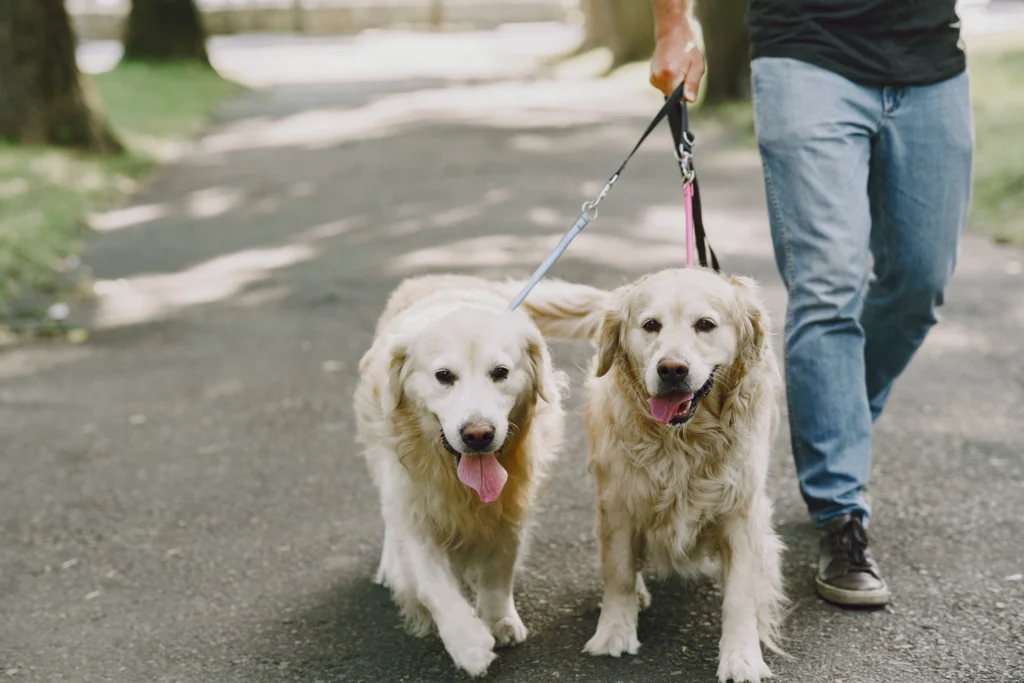
The Environmental Pawprint
Dog waste, if not disposed of properly, can have a significant environmental impact:
- Water Pollution: Rainwater runoff can carry dog waste into waterways, contaminating rivers, lakes, and oceans. This can harm aquatic life by introducing harmful bacteria and excess nutrients that disrupt the delicate balance of ecosystems.
- Parasite Transmission: Dog waste can harbor parasites that pose a health risk to humans and wildlife.
- Nutrient Overload: Dog waste left on the ground can decompose and release excess nutrients like nitrogen and phosphorus. This can contribute to algal blooms, harming water quality and aquatic life.
Exploring Other Environmental Impacts
Dog ownership extends beyond waste management:
- Wildlife Disruption: Off-leash dogs can disturb nesting birds, chase small animals, and disrupt the natural balance of local wildlife populations.
- Habitat Damage: Dog paws can damage delicate ecosystems, particularly in sensitive areas like wetlands or sand dunes.
The Legal Landscape
South Carolina doesn’t have specific laws mandating dog waste management practices. However, leash laws and responsible dog ownership play a crucial role in minimizing environmental impact:
- Leash Laws: Many municipalities in South Carolina have leash laws requiring dogs to be on a leash in public spaces. This helps prevent them from disturbing wildlife or damaging sensitive habitats.
- Pooper Scooper Laws: While not statewide, some municipalities have ordinances mandating dog owners to pick up and dispose of their dog’s waste properly.
Becoming an Eco-Conscious Dog Owner
Here’s how you can minimize your dog’s environmental impact:
- Responsible Waste Management: Always carry poop bags and dispose of your dog’s waste properly in designated waste bins. Never leave it on the ground.
- Respecting Leash Laws: Follow leash laws in all public spaces. Keeping your dog on a leash protects wildlife and prevents them from damaging sensitive areas.
- Sticking to Designated Trails: When exploring outdoor areas, stick to designated dog walking trails to minimize habitat disruption.
- Biodegradable Waste Bags: Choose biodegradable waste bags to minimize your environmental footprint.
Advocacy and Awareness
You can contribute to a greener future for dog ownership in South Carolina:
- Supporting Pooper Scooper Laws: Advocate for the implementation of pooper scooper laws in your municipality.
- Educating Others: Spread awareness about responsible dog ownership practices and the environmental impact of dog waste.
- Picking Up After Others: If you see someone not cleaning up after their dog, consider picking it up yourself and politely reminding them of responsible ownership.
Eco-Friendly Dog Ownership Products
Several eco-friendly dog ownership products can minimize your environmental impact:
- Compostable Waste Bags: Compostable waste bags are a sustainable alternative to traditional plastic bags.
- Reusable Waste Bags: Reusable waste bags are a more eco-friendly option as they can be washed and reused after each walk.
- Eco-Friendly Dog Toys: Look for dog toys made from recycled materials to reduce your environmental footprint.
Dog Behavioural Training Laws in South Carolina
South Carolina, with its beautiful beaches, charming cities, and vibrant dog culture, is a paradise for canine companions and their human families. However, ensuring your furry friend behaves well in public spaces requires proper training. While South Carolina doesn’t have specific laws mandating dog training, understanding responsible ownership practices and available resources empowers you to raise a well-mannered and socialized dog.
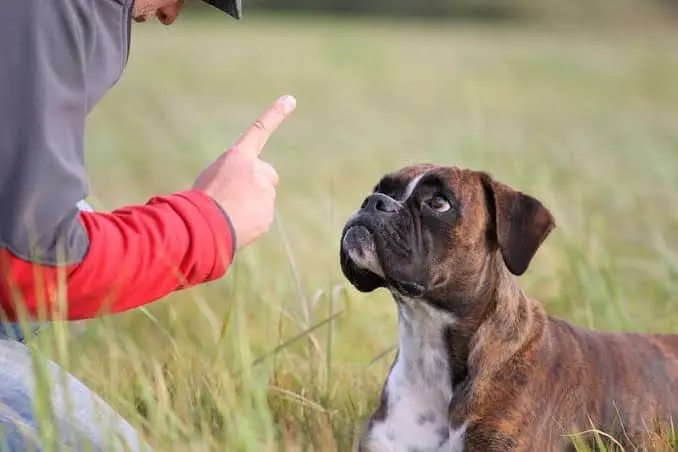
The Importance of Dog Behavioral Training
Dog behavioral training offers numerous benefits for both you and your canine companion:
Improved Communication: Training fosters better communication between you and your dog, strengthening your bond and making daily interactions smoother.
Reduced Behavioral Issues: Training helps address unwanted behaviors like barking, jumping, chewing, or leash pulling, creating a more harmonious living environment.
- Safer Interactions: A well-trained dog is less likely to pose a threat to other animals or people, promoting safety in public spaces.
- Enhanced Quality of Life: Behavioral training contributes to a happier and more fulfilling life for you and your dog by allowing for greater freedom and enjoyable shared experiences.
The Legal Landscape
South Carolina doesn’t have laws mandating dog training. However, responsible dog ownership practices and existing legislation can influence training decisions:
Understanding the Different Types of Dog Training
Several dog training approaches can benefit your furry friend:
Additional Resources
Numerous resources can supplement your dog’s training journey:
Factors Influencing Dog Behavior
While training is essential, consider these additional factors that influence dog behavior:
The Importance of Responsible Ownership
Beyond training, responsible ownership practices contribute to your dog’s well-being:
Dog Protection and Rescue Laws in South Carolina
South Carolina, with its warm hospitality and stunning scenery, boasts a vibrant dog-loving community. But ensuring the safety and well-being of all dogs requires understanding the legal framework surrounding animal protection and rescue. This comprehensive guide explores dog protection and rescue laws in South Carolina, empowering you to be a responsible dog owner, advocate for animal welfare, and potentially participate in the noble cause of dog rescue.

The Legal Landscape
South Carolina prioritizes animal welfare through its Animal Cruelty Laws. These laws define acts of cruelty and neglect, outlining penalties for violators and empowering intervention for suffering animals. Here’s a breakdown of key aspects:
- Prohibited Acts: The laws prohibit abandonment, neglect, starvation, dehydration, inflicting unnecessary pain or suffering, and failing to provide necessary veterinary care.
- Reporting Requirements: Anyone suspecting animal cruelty is legally obligated to report it to local animal control authorities or law enforcement.
- Penalties: Violations of animal cruelty laws can result in fines, imprisonment, and court-ordered restitution for veterinary care.
- Confiscation of Animals: Authorities have the legal power to seize animals from situations of cruelty and neglect, placing them in shelters or rescue organizations.
Your Role in Protecting Dogs
As a dog owner or concerned citizen, you play a crucial role in safeguarding dogs:
- Reporting Suspected Abuse or Neglect: If you suspect a dog is being mistreated, neglected, or abandoned, don’t hesitate to report it to the appropriate authorities. Documentation with photos or videos can strengthen your report.
- Proper Identification: Microchip your dog and ensure your contact information is up-to-date. This allows authorities to reunite lost or stolen dogs with their owners quickly and efficiently.
- Responsible Ownership: Provide your dog with proper care, including food, water, shelter, veterinary care, and socialization. Responsible ownership reduces the risk of your dog ending up in a shelter or rescue situation.
Dog Rescue Organizations
South Carolina has a network of dedicated dog rescue organizations working tirelessly to provide care and find forever homes for abandoned, surrendered, or stray dogs. Here’s how these organizations function:
- Intake and Assessment: Rescues take in dogs from various sources, including shelters overflowing with animals, owner surrenders, or strays found by citizens.
- Veterinary Care: Rescues ensure dogs receive necessary medical attention, vaccinations, and treatment for any existing health conditions.
- Socialization and Training: Many rescues provide socialization opportunities and basic training to help dogs become more adoptable.
- Adoption Process: Rescues have adoption procedures to place dogs in responsible, loving homes that can meet their needs. They often conduct screenings and home visits to ensure a good fit.
Ways to Get Involved in Dog Rescue
There are numerous ways to contribute to the vital work of dog rescue organizations:
- Volunteer: Many rescues rely on volunteers for various tasks like dog walking, socializing dogs, assisting with adoption events, or fostering dogs in their homes.
- Donation: Financial donations directly support rescues, helping them cover food, veterinary care, and shelter expenses. Donating supplies like blankets, toys, or leashes is also helpful.
- Adoption Advocacy: Spread awareness about dog rescue organizations and the needs of homeless dogs. Consider adopting a dog yourself or encourage others to do the same.
- Fundraising: Organize fundraising events or initiatives to raise money for local rescues.
Shelter Laws and Procedures
Animal shelters in South Carolina play a crucial role in housing stray or surrendered dogs. Here’s how shelters operate and legal considerations:
- Stray Hold: Shelters typically have a stray hold period during which they attempt to locate the dog’s owner. After this period, the dog becomes eligible for adoption.
- Adoption Process: Shelters have adoption procedures to ensure responsible placements. This might involve adoption fees, background checks, and home visits.
- Euthanasia: While most shelters strive for no-kill policies, euthanasia might be considered for sick, injured, or unadoptable dogs with low quality of life.
- Transparency: Shelters are required to maintain records and have adoption policies readily available for public review.
Additional Resources
Several resources can help you learn more about dog protection and rescue in South Carolina:
- South Carolina Department of Agriculture (SCDA): The SCDA website provides information on animal cruelty laws, reporting procedures, and a listing of licensed animal shelters.
- South Carolina Animal Control Association (SCACA): The SCACA website offers information on animal control services in various municipalities across South Carolina.
Dog Entertainment and Work Laws in South Carolina
South Carolina, with its beautiful beaches and vibrant communities, attracts not only tourists but also talented canine companions. Whether your dog is a natural entertainer or a skilled working partner, understanding the legal landscape surrounding dog entertainment and work in South Carolina is crucial. While specific regulations might not be as extensive as in other states, responsible ownership and adherence to existing laws ensure your furry friend can participate in these activities safely and ethically.
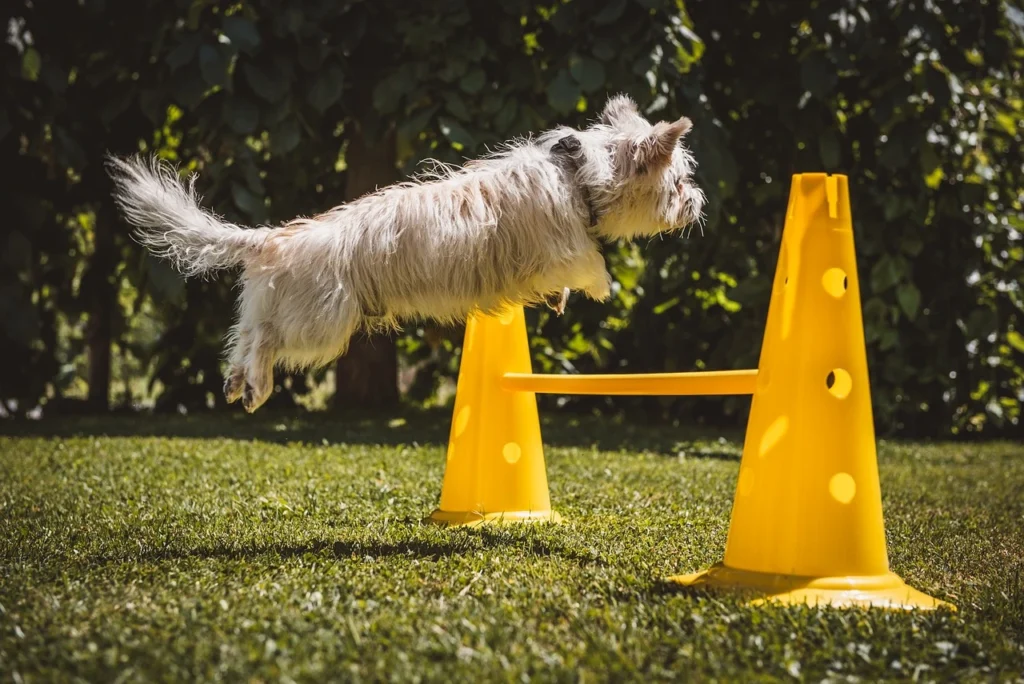
The Legal Landscape
South Carolina prioritizes animal welfare through its Animal Cruelty Laws. These laws, while not directly targeting dog entertainment or work, provide a foundation for ensuring your dog’s well-being during any activity:
- Prohibited Acts: The laws prohibit acts of cruelty and neglect, including overexertion, forcing participation in activities causing pain or distress, and failing to provide adequate rest and recovery periods.
- Veterinarian Oversight: Regular veterinary checkups are crucial to ensure your dog’s physical and mental fitness for any demanding activity. Veterinary guidance can help you design safe training regimens and identify potential limitations.
- Reporting Requirements: If you suspect a dog is being mistreated or forced to participate in activities beyond its capabilities, report it to the authorities.
Dog Entertainment
Dog entertainment encompasses various activities, from participating in dog shows to appearing in commercials. Responsible planning is key:
- Breed Suitability: Consider your dog’s breed, temperament, and energy level before engaging them in entertainment activities. Not all dogs enjoy the spotlight.
- Training and Preparation: Proper training ensures your dog feels comfortable and confident in performance settings.
- Breaks and Rest Periods: Provide ample rest breaks with access to water and shade to prevent overheating or exhaustion.
- Humane Treatment: Prioritize your dog’s well-being above all else. Avoid stressful environments, harsh training methods, or excessive demands.
- Child Actor Laws: If your dog is involved in film or television productions, be aware of child actor laws regarding breaks, working hours, and humane treatment on set.
Regulations for Dog Work
While South Carolina doesn’t have specific regulations for all dog work, specific areas have established guidelines:
- Service Animals: Federal laws define service animals as dogs trained to perform tasks for individuals with disabilities. Businesses and public spaces must grant access to service animals.
- Therapy Animals: Therapy animals provide emotional support in non-medical settings like hospitals or nursing homes. While not legally mandated access, some facilities have established guidelines for therapy animal visitation.
- Working Dogs on Private Property: Laws are less defined for working dogs on private property. However, animal cruelty laws still apply, ensuring working dogs receive proper care and aren’t subjected to harsh conditions.
Additional Considerations
Some additional aspects to consider regarding dog entertainment and work:
- Insurance: Consider liability insurance coverage for potential situations where your dog might cause accidental harm while working or performing.
- Contracts and Agreements: For professional dog entertainment or work, ensure clear contracts outlining expectations, compensation, and safety protocols for your dog.
- Permits and Licenses: Some municipalities might require permits for specific dog-related activities within city limits. Research local ordinances to ensure compliance.
Organizations and Resources
Several resources can help you navigate dog entertainment and work in South Carolina:
- National Organizations: National organizations like the American Kennel Club (AKC) or the American Humane Society offer guidelines for responsible dog handling practices in various entertainment and work settings.
- Veterinarians: Consult your veterinarian for advice on training, conditioning, and ensuring your dog’s physical and mental fitness for demanding activities.
- Professional Trainers: Professional trainers specializing in working dogs or animal actors can provide valuable guidance and training programs.
Dog Technology and Innovation Laws in South Carolina
South Carolina, known for its charm and natural beauty, is also embracing the growing trend of pet technology. From wearable trackers to smart feeders, innovative products promise to enhance the lives of dogs and their owners. However, the legal landscape surrounding dog technology and innovation in South Carolina is still evolving. This comprehensive guide explores the exciting world of dog tech, potential legal considerations, and responsible use of these advancements.

The Rise of Dog Tech
Dog technology encompasses a diverse range of products and services designed to improve dog health, well-being, and communication:
- Wearable Trackers: GPS trackers and activity monitors provide real-time location data and insights into your dog’s activity levels, sleep patterns, and overall health.
- Smart Feeders and Water Dispensers: These automated feeders and dispensers ensure your dog receives consistent portions of food and water, even when you’re away.
- Remote Training Devices: Some devices utilize electronic stimulation or sound corrections to facilitate remote training, although ethical considerations and responsible use are crucial.
- Interactive Toys: Tech-powered toys can engage your dog’s mind and provide mental stimulation, promoting healthy play behavior.
- Pet Cameras and Monitors: Live-streaming cameras and monitors allow you to check in on your dog remotely, offering peace of mind and the ability to interact with them even when you’re not physically present.
The Legal Landscape
South Carolina doesn’t have specific laws directly regulating dog tech products. However, existing legal frameworks offer some relevant considerations:
- Consumer Protection Laws: These laws protect consumers from deceptive advertising, faulty products, and potential safety hazards. When purchasing dog tech, choose reputable brands and carefully review product safety information.
- Animal Cruelty Laws: South Carolina’s Animal Cruelty Laws remain paramount. Avoid using any dog tech product that causes pain, distress, or discomfort to your furry friend.
- Veterinarian Oversight: While some dog tech products might promote health benefits, consult your veterinarian for advice on integrating these tools into your dog’s care routine. They can help ensure the technology complements your existing veterinary healthcare plan.
Responsible Use of Dog Tech
While dog tech offers exciting possibilities, prioritize your dog’s well-being with responsible use:
- Prioritize Training: Don’t solely rely on remote training devices for behavior modification. Invest in positive reinforcement training methods for a strong foundation in communication and obedience.
- Monitor Interactions: Actively monitor your dog’s interactions with tech products. Ensure they understand how to engage with the technology and don’t experience any frustration or anxiety.
- Data Privacy: Be mindful of data collection practices associated with some dog tech products. Understand how your dog’s information is collected, stored, and used.
- Cybersecurity Awareness: Some dog tech products utilize internet connectivity, making them potentially vulnerable to hacking. Choose products with robust security features and update software regularly.
- Don’t Replace Human Interaction: Dog tech shouldn’t replace the essential human connection your dog needs. Ensure you provide ample playtime, walks, and quality interaction to maintain a strong bond with your furry friend.
The Future of Dog Tech Innovation
The future of dog technology is brimming with possibilities:
- Telehealth for Pets: Remote veterinary consultations facilitated by technology might become more commonplace, offering greater accessibility to pet care.
- Advanced Activity Tracking: Wearable trackers could analyze data to detect potential health concerns based on activity patterns.
- Personalized Nutrition: Smart feeders might integrate with DNA testing to provide customized feeding plans based on your dog’s individual needs.
- AI-powered Training Tools: Artificial intelligence could personalize training experiences and offer real-time feedback for improved communication with your dog.
Human Coexistence Laws in South Carolina
South Carolina, with its vibrant communities and beautiful natural spaces, is a haven for both dog lovers and outdoor enthusiasts. But fostering harmonious human-canine coexistence goes beyond simply sharing a home. While there aren’t specific laws directly mandating dog socialization or interaction, South Carolina’s legal framework and community initiatives create an environment that encourages responsible dog ownership and promotes positive human-dog relationships.

The Importance of Human-Dog Coexistence
Building a strong bond with your dog benefits both parties:
- Improved Quality of Life: Dogs provide companionship, reduce stress, and encourage physical activity, leading to a happier and healthier life for their human companions.
- Well-Adjusted Dogs: Socialization with humans helps dogs develop confidence, reduce anxiety, and become more manageable in public settings.
- Stronger Communities: Responsible dog ownership fosters a sense of community as dog owners interact and socialize their dogs in dog parks or during outdoor activities.
The Legal Landscape
South Carolina doesn’t have laws mandating dog socialization or interaction. However, existing regulations indirectly promote human-dog coexistence through responsible ownership:
- Leash Laws: Many municipalities in South Carolina have leash laws requiring dogs to be on a leash in public spaces. This promotes responsible control and prevents potentially negative interactions between dogs and people.
- Pooper Scooper Laws: While not statewide, some municipalities have ordinances mandating dog owners to pick up and dispose of their dog’s waste properly. This helps maintain clean public spaces and reduces the risk of disease transmission, promoting a more enjoyable environment for everyone.
- Dangerous Dog Laws: South Carolina has dangerous dog laws outlining legal repercussions for dog bites or attacks. Proper socialization and training significantly reduce the risk of your dog falling under these classifications, fostering safer interactions within communities.
Community Initiatives for Human-Dog Coexistence
South Carolina boasts numerous community initiatives promoting human-dog interaction:
- Dog Parks: Many cities and towns have designated dog parks offering fenced-in areas where dogs can run leash-free, socialize with other dogs, and interact with their owners in a safe and controlled environment.
- Dog-Friendly Businesses: An increasing number of businesses in South Carolina welcome well-behaved dogs, allowing them to accompany their owners on shopping trips or outdoor dining experiences.
- Dog Training Classes: Dog training classes not only improve communication and obedience but also provide opportunities for socialization and positive interactions with other dogs and trainers.
- Dog-Friendly Events: Communities across South Carolina host dog-centric events like walks, runs, or social gatherings, fostering a sense of community among dog owners and promoting human-dog interaction.
Responsible Ownership
Here’s how you can contribute to a more positive human-canine environment:
- Socialization: Prioritize socializing your dog from a young age to ensure they are comfortable interacting with other dogs and people of all ages and backgrounds.
- Positive Reinforcement Training: Utilize positive reinforcement training methods to build a strong bond with your dog and encourage desirable behavior during interactions with others.
- Respectful Interactions: Teach your dog appropriate greeting etiquette and ensure they interact politely with other dogs and people in public spaces.
- Responsible Leash Etiquette: Always follow leash laws and maintain control of your dog on walks. Be mindful of others in shared spaces and avoid situations that could lead to unwanted interactions.
The Future of Human-Dog Coexistence
The future of human-dog coexistence in South Carolina is bright:
- Increased Dog-Friendly Spaces: The trend of dog-friendly businesses and public spaces is likely to continue, offering more opportunities for shared experiences.
- Technological Advancements: Wearable dog tech like activity trackers or communication devices could enhance communication and understanding between humans and dogs.
- Focus on Mental Well-being: A growing emphasis on canine mental health could lead to more resources and programs promoting positive human-dog interactions and fostering strong emotional bonds.
Other Relevant Dog Laws in South Carolina
South Carolina’s legal framework extends beyond basic dog ownership to encompass various aspects of canine life. Here’s a closer look at some specific dog laws and considerations you might encounter:
Canine Good Citizen (CGC) Programs and Legal Benefits
- Canine Good Citizen (CGC) Programs: The American Kennel Club (AKC) offers CGC programs, a series of tests demonstrating a dog’s basic obedience and good manners in public settings. While not mandated by law, completing a CGC program can have some benefits:
- Reduced Insurance Rates: Some insurance companies might offer discounts on pet insurance for dogs who have completed CGC training.
- Rental Approval: Landlords might be more inclined to approve dog-friendly rentals for applicants with CGC-certified dogs.
- Community Recognition: CGC certification demonstrates your commitment to responsible dog ownership and can enhance your dog’s social acceptance.
Dog Insurance and Coverage Laws
- Dog Insurance: While not mandated by law, dog insurance can provide financial protection for unexpected veterinary bills resulting from accidents or illnesses.
- Coverage Laws: Review specific insurance policies and coverage details carefully. Some policies might exclude coverage for specific breeds or pre-existing conditions.
Laws Regarding Dogs in Hot Cars and Animal Endangerment a
- South Carolina Animal Cruelty Laws: Leaving a dog unattended in a hot car can be considered animal cruelty under South Carolina law. Even cracked windows can quickly trap heat inside a vehicle, putting your dog at risk of heatstroke or death.
- The Good Samaritan Law: South Carolina’s Good Samaritan Law protects individuals who break into a vehicle to rescue an animal in distress from extreme heat.
Legal Aspects of Dog Parks and Shared Spaces
- Leash Laws: Even in designated dog parks, leash laws might apply to specific areas within the park. Always check signage and follow posted regulations.
- Waste Removal: Most dog parks require owners to pick up and dispose of their dog’s waste properly.
- Aggressive Dog Behavior: Owners are responsible for their dog’s behavior in shared spaces. If your dog exhibits aggressive tendencies, remove them from the park immediately.
Dog-Related Property Damage and Homeowner’s Insurance in South Carolina
- Homeowner’s Insurance: Most homeowner’s insurance policies cover dog-related property damage to your own property, with limitations and deductibles applicable.
- Liability for Damage to Others’ Property: If your dog damages someone else’s property, you might be held liable for the repairs or replacements.
Service and Working Dog Laws in Employment and Public Access
- Federal Service Animal Laws: The Americans with Disabilities Act (ADA) defines service animals as dogs trained to perform tasks for individuals with disabilities. Service animals are granted access to public spaces and workplaces that don’t typically allow pets.
- Therapy Animals: Therapy animals provide emotional support but aren’t covered by the ADA. While public spaces and workplaces aren’t obligated to grant access to therapy animals, some facilities might have established guidelines for visitation.
- Working Dogs on Private Property: Laws are less defined for working dogs on private property. However, animal cruelty laws still apply, ensuring working dogs receive proper care and aren’t subjected to harsh conditions.
Animal Welfare and Protection Laws Against Neglect and Abandonment
- South Carolina Animal Cruelty Laws: These laws define acts of cruelty and neglect, including abandonment, starvation, dehydration, inflicting unnecessary pain or suffering, and failing to provide necessary veterinary care.
- Reporting Requirements: Anyone suspecting animal cruelty is legally obligated to report it to local animal control authorities or law enforcement.
South Carolina offers a welcoming environment for dog lovers, but navigating dog-related legalities is crucial. This guide explored various aspects, from training and rescue laws to dog tech and shared spaces. Understanding leash laws, animal cruelty prevention, and responsible ownership practices empowers you to be a good dog owner.
Compliance with dog laws benefits everyone. It protects your furry friend’s well-being, fosters safer public spaces, and strengthens the human-canine bond within South Carolina’s vibrant communities.
FAQs
Can I bring my dog to the beach in South Carolina?
South Carolina beach regulations vary by municipality. Some beaches allow dogs on leash during specific hours, while others have restrictions or complete bans. Always research the specific beach regulations before bringing your dog.
Are there any breed restrictions in South Carolina?
South Carolina doesn’t have a statewide ban on specific dog breeds. However, some municipalities might have breed-specific ordinances or restrictions on owning certain breeds within city limits. Research local ordinances before getting a dog.
What are the laws regarding barking dogs in South Carolina?
South Carolina doesn’t have a statewide noise ordinance for barking dogs. However, many municipalities have noise ordinances that might address excessive barking. The definition of “excessive” can vary, so check your local noise ordinance for details.
Do I need to microchip my dog in South Carolina?
Microchipping your dog is not mandatory by law in South Carolina. However, it’s highly recommended. A microchip significantly increases the chances of reuniting with your dog if they get lost or stolen.
What are the penalties for violating dog laws in South Carolina?
Penalties for violating dog laws in South Carolina vary depending on the specific offense. They can range from fines and community service to impoundment of your dog or even criminal charges in severe cases.





